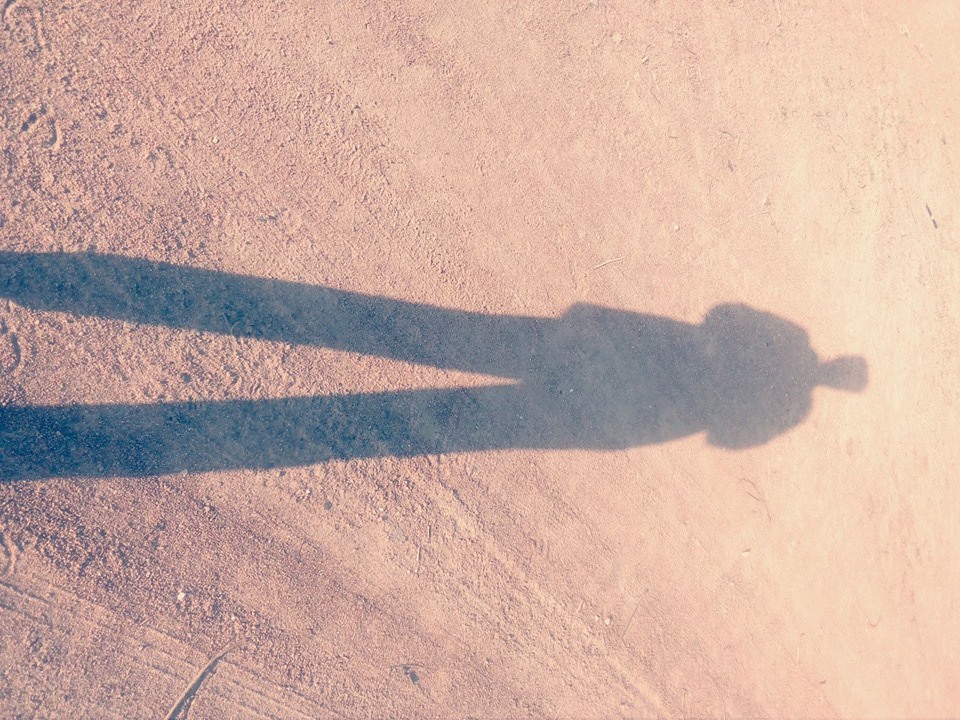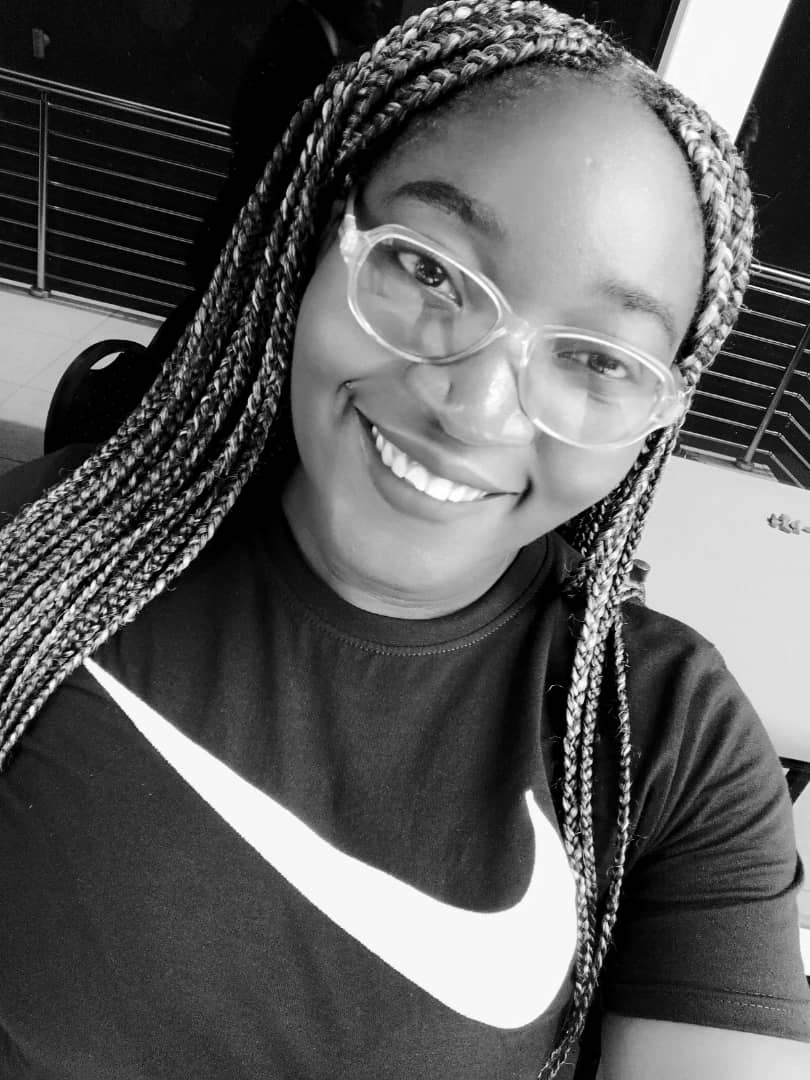
Photo credit: Lydia Ume
Last January, I was on the phone with a friend, while waiting for a taxi. We hadn’t spoken in months. “I didn’t reach out because you seemed so angry,” she said. I snorted and asked her why she thought I was angry. “From your updates, your words, your writing. So I was waiting for it to pass.”
I recall laughing over it and saying “I am a Nigerian woman who identifies as a feminist, it’s not my fault.”
But I was worried too. Anger wasn’t an emotion I wanted anyone to identify me with. I wanted to be the cool-headed girl, the feminist who always conversed courteously. I wanted to be known for my calmness, even while raging. I wanted my fury wrapped, leashed.
So I started to dissect my anger: Why was I afraid of being angry? Why was I afraid of being called an angry feminist? Why was it important that I appear unthreatening, reduce my voice so that others could hear me? Were they really not hearing me because I was angry, or did they cleave to my anger as an excuse to hold onto their privileges?
I left social media in 2017 after a thread of arguments on who should take responsibility for rape: the rapist or the victim. Before then I was already withdrawn, present only because I liked reading posts from feminists like Ijeoma Chinonyerem, but ultimately distant from the constant buzz of social media.
Before this withdrawal, there had been an incident on Facebook where Feminists were being blamed for Nigeria’s problems. I wrote a rebuttal on my wall. Strangers crawled over and attacked my opinion. One guy, a cousin to my best-friend and recent admirer, commented that families dissolve because women are encouraged by feminists to be unsubmissive. I told him submission applies to men, too. He scurried to my inbox, brimming with insults. (You are disrespectful, no one will marry you, etc) I was furious, but too many people had called me angry and bitter. I wanted to prove them wrong. In lieu of a response, I blocked him, my hands shaking, my heart pounding, with rage. Later, I wrote about things that made everyone laugh.
Then there was another rape case that jammed the Facebook buzz button. Someone made a post advising women to “dress decently”. My anger rose again, like wheat, as I read through the comments: Nigerian men believe that a woman has consented to have sex, if she pays them a visit. Nigerian women take responsibility for rape or normalise it. (It’s how men are) I was angry; I lost control. I trolled the comments, while screaming and pacing my room. My guest begged me to calm down, to leave my phone. But I wanted to tell my story. I am not a statistic. I am a person.
I was angry long before I became vocal on social media three years ago, I was angry as a child when they blamed me for being sexually assaulted, I was angry every time I was told my anger will make men not choose me. I was angry when a female pastor told a room of about ten thousand women that “it is better to be in unity with your husband than be correct”. I was angry when a pastor sexually assaulted women under him and these women were marked as scarlet women and shamed while he retained his position. I was angry when the #Metoo movement rocked the world and these women were discredited and it was called a witch-hunt on men.
I was angry every time I had to take a bike to my house at night, travelling a much farther route instead of walking the short path because I could be robbed and raped. I was angry when a bike man groped me and I had to pretend I found it innocuous because the farther route has a few lonely paths and he could harm me. I was angry when he dropped me in front of my house and said “You look like a nice girl, won’t you invite me in to drink water?”
I was angry when a drunk thought he had the right to pull me apart from holding my girlfriend because “there was something fishy about the tenderness”. I was angry when my professors were homophobic and refused to teach queer theory even when they should have.
I am still angry.
I am angry when men pretend that they have no privileges and cry when sexism, the creepy wasp, bites them in the ass. I am angry when men mansplain to me in class and then try to copy my work during exams. I am angry when I recall I moved out of the school hostel for not being “permitted” to wear shorts or skirts above the knee, to save the sanctity of men, for not being able to hang my underwear on the clothesline, because men shouldn’t see it.
How can I not be angry? How do I handle it or say it in terms that are polite, courteous and will not hurt your feelings? How do I speak softly to my sisters who think I’m silly because they like the muted security of patriarchy?
After months of deactivating my Facebook account, I activated it again but only posted pictures, memes and the occasional ramble. I commented on specific posts and ignored comments. But I still needed to write; writing is my salvation. I started a blog, but I was scared of writing the things I actually wanted to write. The things I wanted to write were red, furious, it was a thousand fuck yous. The things I wanted to write were loud, cutting, rebellious, dialogue-less. All I wanted to write was war and resistance. But I was wary of public opinion. I was afraid that my words would mean nothing and cause no change. I felt unworthy of tackling these topics. I was going to be another rambunctious, desolate preacher patrolling the internet.
For years, my anger had been silence imploding; it was a lung full of needles, tearing into my mind as breathless anxiety and a stomach, hollowed out. I was reading a lot and I wanted a space to talk about these new things I was learning. And I was finally getting the courage to see that what was, was no longer satisfactory. I could have more as a woman. I was learning feminism all over again. I was reading books by black women, about intersectional feminism, I was hungry and desperately needed an outlet to gush. A journal wasn’t enough anymore. I read Roxane Gay and she wrote my pain in a way that had me sobbing and shaking for weeks. I saw myself and my struggles with fatness. I found a community of women who create a safe space to talk about sex. I started to observe ways sexism reflected in my society and addressed the ones I could. I stopped fancying myself as some feminism proselyte because I saw that it wasn’t that people didn’t always see the injustice in society or the ways it affected them. Some were too protective of the privileges that came with a patriarchal system.
Then, one day, I updated my WhatsApp and received status updates. It was a controlled audience: I could engage responses individually. And, in that safe space, my anger blossomed. I could interject every letter with “fuck” if I wanted; I was me. My words came out exactly as I thought them. It didn’t matter if anyone engaged or not, all I did was write. I didn’t care about grammar and it didn’t matter if I had all the knowledge or not – I could learn. The more I wrote , the more I wanted to learn. I had friends who challenged my ideas, making it easier to frame my thoughts and resulting in conversations that were fruitful. I understood socialization and construction of gender. I attended a gender studies conference and listened to men and women speak and debate brilliantly.
I applied for graduate studies and focused my research interest on feminist theory and there, I met Audre Lorde, Bessie Head, Alice Walker, Helen Chukwuma, Leslie Ogunpdipe and many others. But it was Lorde who taught me about anger.
In The Uses of Anger: women responding to racism, an essay in her seminal work Sister Outsider, Lorde explains that anger is a response to injustice, to sexism. She speaks of our familiar fear of anger being an effect of growing up in spaces where women’s anger was clamped on. A show of anger marks you as a social pariah, nwokenwanyi, and stereotyped as a mad woman, hysterical and emotionally imbalanced. Even the Greats, Serena Williams, Chimamanda Adichie, Hilary Clinton, have been attacked for daring to be too loud.
It was Lorde who helped me see that anger isn’t necessarily a sign of destruction. It can be a tool for courage, to become more of myself:
Every woman has a well-stocked arsenal of anger potentially useful against those oppressions, personal and institutional, which brought that anger into being. Focused with precision it can become a powerful source of energy serving progress and change. And when I speak of change, I do not mean a simple switch of positions or a temporary lessening of tensions, nor the ability to smile or feel good. I am speaking of a basic and radical alteration in those assumptions underlining our lives.
I feel oppressed as a woman navigating Nigeria. Anger could be all I have. And I have decided to channel it, by starting another blog that I hope to build into a safe space for women to have conversations and own their narrative. One morning, last February, I woke up and made a Whatsapp status update: “I have come to terms that I am an angry person and there’s nothing wrong with that.” But, sometimes, I am still afraid. ✚

Ume is a contributing writer to The Question Marker. She is a graduate student in African Literature and blogs at Badly Behaved Lady


